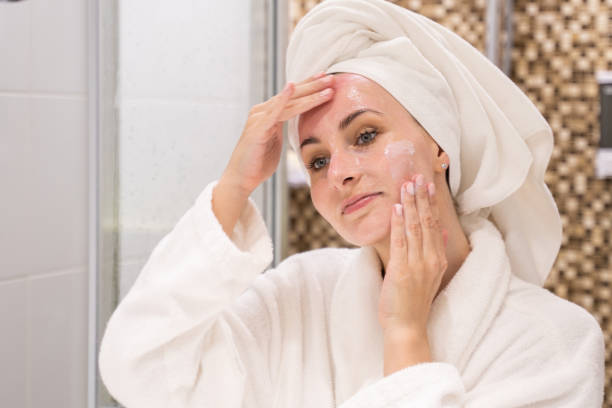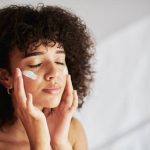As we age, wrinkles become a common skin concern, prompting many to seek effective anti-aging solutions. Vitamin E cream is renowned for its nourishing properties and powerful antioxidant effects, which can be instrumental in reducing the appearance of fine lines and wrinkles. This article delves into the benefits of vitamin E cream for aging skin, its application in daily skin care regimens, and how to choose the right product for your skin type. By exploring the scientific backing and proper usage, we aim to unravel whether vitamin E cream truly stands as a worthy ally in the quest for younger-looking skin.
Introduction to Vitamin E and Skin Health

Vitamin E, known scientifically as tocopherol, is a fat-soluble vitamin that’s essential for maintaining healthy skin. Its potent antioxidant properties safeguard the skin from oxidative stress caused by harmful free radicals and UV rays. Wrinkles often result from such environmental damage, and the application of vitamin E cream can help to fortify the skin’s natural defense system. Over time, dermatologists have embraced vitamin E as a staple in skin care for its hydrating and repairing capabilities, often recommending it as part of a comprehensive anti-aging regimen.
Exploring the Efficacy of Vitamin E Cream for Wrinkles

Vitamin E’s effectiveness against wrinkles isn’t just rooted in anecdotal evidence; scientific research supports its role in enhancing skin health. Studies suggest that vitamin E’s ability to moisturize and improve skin texture contributes to a visible reduction in the depth and length of wrinkles. Additionally, as an antioxidant, it aids in cell regeneration and the healing of damaged skin, which is crucial in preventing the formation of new wrinkles and minimizing existing ones. This skin-rejuvenating effect is what positions vitamin E cream as a go-to product in anti-aging skin care.
The Best Ways to Incorporate Vitamin E Cream Into Your Routine
Ensuring the most benefit from vitamin E cream involves strategic application. While it can be used both during the day and at night, nighttime use allows the skin to absorb its nutrients without competition from sunscreen or makeup. However, daily use combined with a broad-spectrum sunscreen will provide the best protection against the contribution of sun exposure to skin aging. Consistency is key—for optimum outcomes, vitamin E cream should be applied regularly as part of a daily skincare routine.
Synergistic Ingredients – What Works Well with Vitamin E
When paired with the right ingredients, vitamin E’s efficacy in targeting wrinkles can be significantly boosted. Here are two synergistic combinations that are particularly effective:
- Antioxidant Partners: Pair vitamin E with vitamin C for a double dose of antioxidant power that provides enhanced protection against free radical damage.
- Collagen Support: Combine vitamin E with peptides, which signal the skin to produce more collagen, resulting in a firmer and more youthful complexion.
In addition to these combinations, integrating vitamin E with daily sunscreen amplifies protection and anti-aging benefits.
Choosing the Right Vitamin E Cream for Your Skin Type
While vitamin E cream can certainly be a valuable addition to your skin care arsenal, not all formulas are created equal. It’s important to select a product that suits your skin’s specific needs to avoid adverse reactions and ensure the best results. Below is a table highlighting recommended vitamin E cream types for various skin concerns:
| Skin Type | Product Recommendation | Key Considerations |
|---|---|---|
| Sensitive | Fragrance-free, hypoallergenic formula | Minimize risk of irritation |
| Oily | Non-comedogenic, oil-free lotion | Prevent pore blocking |
| Dry | Rich, emollient cream | Provide ample hydration |
| Combination | Balanced formula with mattifying zones | Address oily and dry areas accordingly |
Potential Side Effects and Considerations
While vitamin E cream is generally well-tolerated, some individuals may experience side effects such as skin irritation, redness, or allergic reactions. Those with sensitive skin should approach new products with caution and perform a patch test prior to full application. If adverse effects occur, discontinue use and consult with a dermatologist to explore alternative options or tailored treatments.
Sustaining Healthy Skin: Lifestyle Factors and Vitamin E
Topical treatments like vitamin E cream work best when complemented by a healthy lifestyle. Factors such as balanced nutrition and sufficient water intake contribute significantly to skin health. To support the effects of vitamin E cream from within, incorporate the following vitamin E-rich foods into your diet:
- Almonds and other nuts and seeds
- Spinach and other leafy green vegetables
- Avocados
- Shellfish
- Plant oils, such as wheat germ and sunflower oil
These dietary choices will provide an additional boost to your skin’s defense against aging.
Conclusion
Vitamin E cream offers a host of benefits that can significantly improve the appearance of wrinkles when used as part of a regular skin care routine. It hydrates, heals, and protects the skin, contributing to a smoother, more youthful complexion. While it is suitable for most skin types, attention should be given to selecting the appropriate formula and considering any potential side effects. Supplementing topical application with a healthy diet rich in vitamin E will maximize the cream’s efficacy. Ultimately, consistent and tailored use is essential to harnessing the full wrinkle-fighting potential of vitamin E cream.
FAQs About Vitamin E Cream and Wrinkles
Below are some frequently asked questions to help guide you in your use of vitamin E cream for wrinkles:
Q1: Can vitamin E cream reduce the appearance of existing wrinkles?
A1: Yes, regular application of vitamin E cream can help to minimize the appearance of existing wrinkles by providing necessary hydration and improving skin texture. Its antioxidant properties also combat skin damage and promote healing.
Q2: How long does it take to see results from using vitamin E cream on wrinkles?
A2: The time frame for visible results can vary, but many users may observe improvements in several weeks to a few months with consistent use.
Q3: Is vitamin E cream suitable for all skin types?
A3: Vitamin E cream is generally considered safe for a variety of skin types, but those with sensitive or oily skin should choose a formula that best suits their specific concerns and perform a patch test.
Q4: Can I use vitamin E cream in conjunction with retinol or other anti-aging ingredients?
A4: Vitamin E cream can be paired with other anti-aging ingredients like retinol; however, it’s essential to apply them correctly and watch for signs of irritation. Consultation with a skincare professional is advised to find the best regimen for your skin.
Q5: Is natural or synthetic vitamin E more effective in cream form for wrinkles?
A5: Both natural and synthetic forms of vitamin E have beneficial properties for the skin. Some evidence suggests that natural vitamin E might be more potent, but both can aid in reducing the appearance of wrinkles.


